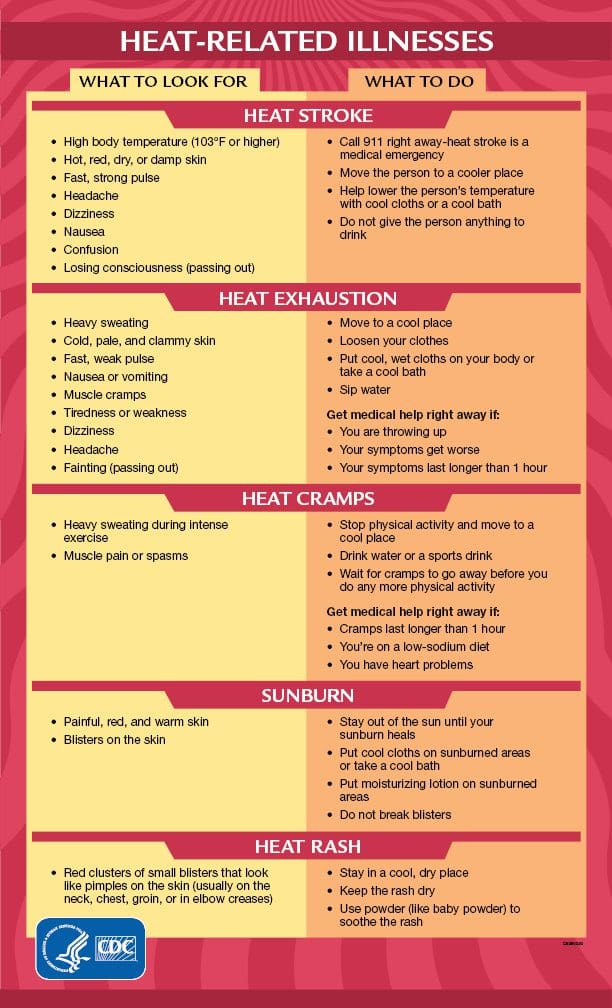Search Posts
Recent Posts
- Rhode Island Weather for June 4, 2025 – Jack Donnelly June 4, 2025
- Sour Grapes time! – Tim Jones (meet Tim at AnimeCon) June 4, 2025
- Lawsuit filed to stop Empire Wind Project by 4 environmental groups and fishermen June 4, 2025
- It is what it is: 6.4.25 – Jen Brien June 4, 2025
- New ALS treatment by PathMaker Neurosystems. Co. funded by RI Life Sciences Hub to come to RI. June 3, 2025
Categories
Subscribe!
Thanks for subscribing! Please check your email for further instructions.

HHS Climate and Health Outlook tackles climate-related hazards – Herb Weiss
By Herb Weiss, contributing writer on aging issues
Over two and a half months ago, the Biden administration launched a new initiative, called the Climate and Health Outlook, to serve as a resource to help people, health professionals, and communities protect individual and community health impacted by climate events.
On May 6, 2022, the U.S. Department of Health and Human Services’ (HHS) Office of Climate Change and Health Equity (OCCHE) launched the first installment of its new public information series called the Climate Health Outlook – https://www.hhs.gov/sites/default/files/climate-health-outlook-may-2022.pdf (Outlook). HHS’s new Outlook series connects weather forecasts to health resources to create actionable data they say will saves lives and reduces illness and health risks associated with climate-related hazards like extreme heat, wildfires, hurricanes, droughts, and vector-borne diseases that impact human health.
According to HHS, this inaugural edition of the Outlook will take on extreme heat, which has been a key target of the Biden administration’s efforts to build resilience to the impacts of climate change. As part of this and future editions, the Outlook series will add a health lens to seasonal weather and climate outlooks from the National Oceanic and Atmospheric Administration (NOAA) to inform health professionals and the public about weather- and climate-related health risks months in advance and provide resources to prepare.
“We’ve seen what exposure to extreme heat can do,” said HHS Secretary Xavier Becerra in a statement announcing the new federal initiative. “It can lead to illness and death and makes it much harder to do a day’s work outdoors. Many people in the United States have jobs that require them to work outside to feed their families regardless of the weather. Our new Climate and Health Outlook protects people and their health by giving advance notice to the communities that will be most impacted in the coming months.” she said.
“Our communities across the country will soon be facing heatwaves that will be an additional strain on our health systems,” adds Assistant Secretary for Health Admiral Rachel Levine. “This information will save lives when used by public health officials, employers with outdoor workers, and schools and local health departments and the individuals they serve. Having information in advance can reduce illness and deaths from extreme heat exposure,” she says.
The Outlook illustrates where the greatest health risks from heat will be in the United States during the early 2022 heat season, presenting estimates of which U.S. counties are expected to experience extremely hot days and identifies the vulnerable populations in those counties that could be impacted by heat exposure. It also provides a set of actionable resources from HHS that are targeted to the public, specific populations, health care professionals, and public health officials to reduce health risks from heat.
HHS says that the Outlook will be updated and improved regularly as future data and feedback are collected. Future editions will address other climate-related threats to the health of people living in the United States, with a focus on those most vulnerable. For a copy of HHS’s Office of Climate Change and Health Equity’s May issue of Climate and Health Outlook: Extreme Heat, go to https://www.hhs.gov/sites/default/files/climate-health-outlook-may-2022.pdf.

On a Personal Note… Surviving the Dog Days of Summer
Just days ago, Rhode Island officials announced its first heat wave It took 3 days of 90 degrees or above to make this call.
Despite the fact that 618 people throughout the nation killed by extreme heat annually, according to the U.S. Centers for Disease Control and Prevention (CDC), says heat-related deaths and illnesses are preventable.
The following tips provided by CDC’s website provide sound tips for helping us stay safe when the temperatures soar.
During an ongoing heat wave, seniors, infants and young children, and people with mental illness, those overweight, and chronic diseases (including heart disease) are at the highest risk of heat-induced illness that can cause a person to become confused or lose consciousness. Seek medical attention immediately for anyone showing signs of heat stroke. Heat stroke can be life-threatening.
With temperatures rising, wear appropriate clothing that is lightweight, light-colored and loose fitting.
During extreme heat and humidity, stay in your air-conditioned house or air-conditioned room, if you have that option. Electric fans may provide temporary comfort, but when the outside temperature soars into the high 90s, they won’t prevent heat-related illnesses. Try taking a cool shower or bath.
Keep in mind: Use your stove and oven less during the heatwave to reduce the inside temperature. Try traveling to an air-conditioned place like a shopping mall, movie theatre, or even go to your local library or cooling shelter? Each city and town, or one nearby, should have cooling centers open. In Providence pools and splash pads have extended hours. For a listing of cooling shelters by city and town, go to https://riema.ri.gov/planning-mitigation/resources-businesses/cooling-centers (If you need additional assistance call 2-1-1). Even being in a cool space for just a few hours can help your body stay cooler when you have to go back outside.
During a heatwave, go to your local gym to exercise so you can limit your outdoor activities. If you go outside, do this in the morning or evening hours when it’s cool. Start your working or exercise slowly and slowly pick up the pace. If the heat makes your heart pound and you gasp for breath, stop all activity. Go immediately to a shady area especially if you become lightheaded, confused, weak or faint, to cool off, this will allow your body to recover from the heat. Drink water.
Sunburn can affect your body’s ability to cool down and can make you dehydrated. So, when going outside, wear a wide-brimmed hat, sunglasses, and put on sunscreen of SPF 15 (“broad spectrum” or “UVA/UVB protection”) or higher 30 minutes before going outside. Continue to reapply it according to the package directions.
Hot heavy meals can heat up your body. When going outside drink plenty of fluids, regardless of how active you are. Don’t wait until you’re thirsty to drink. Most important, if your doctor limits the amount you drink or has you on water pills, ask how much you should drink while the weather is hot.
Also, stay away from very sugary or alcoholic drinks because they cause you to lose more body fluid. You might consider avoiding cold drinks, because they can cause stomach cramps. Room temperature water is better now.
Finally, heavy sweating removes salt and minerals from your body, and they need to be replaced. A sports drink can replace the salt and minerals you lose when sweating. If you are on a low-salt diet, have diabetes, high blood pressure, or other chronic conditions, always talk with your doctor before drinking a sports beverage or taking salt tablets.
Do not leave children or your pets in cars that can quickly heat up to dangerously high temperatures even with a window cracked open. You put them at risk of getting heat stroke or dying. If you leave your pets outside, leave them plenty of water and in a shaded area. Watch metal pieces in your car, like seatbelts, which can heat up to unbelievably high – and even burning to the skin – temperatures.
During a heat wave, always visit or get in touch with older adults (family or friends) at risk at least twice a day and closely watch them for signs of heat exhaustion or heat stroke. Infants and young children, of course, need much more frequent watching.
For CDC’s website page on “Extreme Heat” go to https://www.cdc.gov/disasters/extremeheat/.
For warning signs and symptoms of heat-related illness and what to do, go to https://www.cdc.gov/disasters/extremeheat/warning.html.

Herb Weiss, LRI’12, is a Pawtucket-based writer who has covered aging, health care and medical issues for over 42 years. To purchase his books, Taking Charge: Collected Stories on Aging Boldly, and a sequel, compiling weekly articles published in this commentary, go to herbweiss.com.

